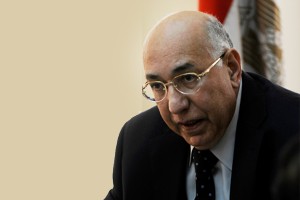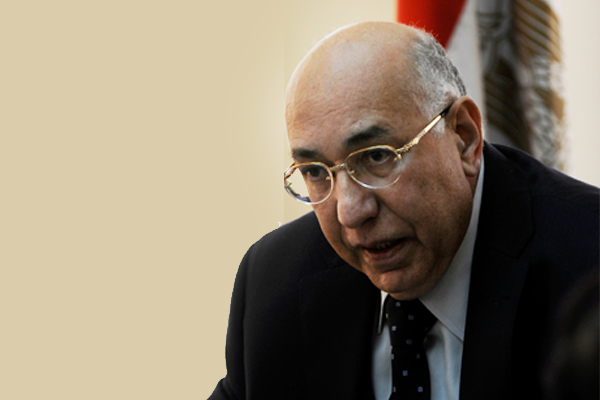By Islam Zayed

Momtaz El-Saeed, outgoing Minister of Finance, has said that he had not met with newly appointed Prime Minister Hesham Qandil as had been reported and that he will not continue his position with the Ministry of Finance. He wished the incoming government good luck.
He added that the coming period will be the most difficult for the economy, adding that the government must take decisive steps to control spending and to tighten the country’s belt. El-Saeed also noted that the economy requires a comprehensive vision for the use of Egypt’s natural and financial resources. He warned against attempts to increase funding for various government agencies, saying that inability to adhere to the state budget will have a negative impact on Egypt’s economic outlook.
“After six months I discovered that the real crisis in Egypt is that people don’tlike to work, they throw trash everywhere, and want money without working,” exclaimed the Minister.
Despite the ongoing work stoppages, syndicates’ demands, and the petroleum crisis, El-Saeed said that the Ganzouri government worked in extremely difficult circumstances and staved off a number of possible crises. He noted that without the efforts of the current government, the economy would have been in a much worse condition.
The minister admitted that the government was not able to follow through on a plan to rationalise energy subsidies because of consecutive crises that necessitated their continuation. He said that one of the priorities of the incoming government should be to prevent energy subsidies from growing out of control.
On the topic of amendments to income taxes, El-Saeed said that the new tax code should distribute tax rates among segments of society in such a way that achieves social justice, noting that the solution is to implement a progressive tax. He also recommended that the new government take measures to combat all types of tax evasion, particularly customs evasion. He noted that since the revolution, Egypt has witnessed an unprecedented level of smuggling and tax evasion and that the government was not able to impose control. El-Saeed added that the state must impose discipline and tight security at all points of entry to apply the value added tax.
On negotiations for financing with the International Monetary Fund and other international financial institutions, El-Saeed said that the new government will be responsible for the programmes which have already been negotiated, commenting that “no country that is subject to the kinds of economic crises that Egypt is currently facing has not found support from international institutions. The failure of these institutions to help Egypt shows that they wish to aggravate the crisis in Egypt.”
During the last several days, Egypt finalised a deal with Saudi Arabia for a $250 million loan for petroleum imports in addition to a deal with the International Islamic Trade Finance Corporation for $1.2 billion in financing for Egypt’s food and energy needs.
On the possibility that a member of the Muslim Brotherhood will take over the Ministry of Finance and attempt to make amendments to the state budget, El-Saeed said that such a move would be a mistake and may very well result in a greater deficit.




